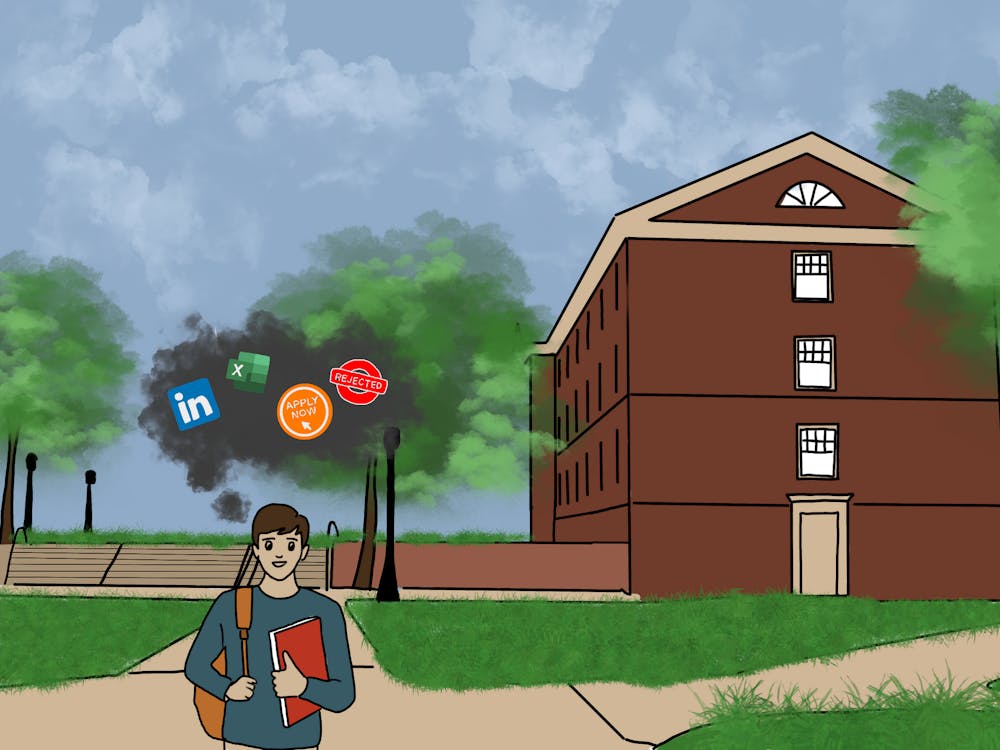Over thirty years ago, when I was a new student at the University, I went out to lunch with a young man I’d dated a few times, with the intention of breaking things off. (This was back in the days when even a short and unserious relationship required a formal exit interview.) He was a very nice guy, and popular — he belonged to a big fraternity on campus — and although he seemed disappointed, he wasn’t in any way crushed. But at the end of the lunch, he did something I never forgot. He reached across the table, grabbed my hand and said I had to promise him something: that I would never, under any circumstances go upstairs alone at a fraternity house. Yes of course, I said, and tried to change the subject — I was young! I knew everything. “No,” he said sharply. I needed to listen to him. This was important.
There was something so urgent in the way he said those words, that I heeded them — in all my time at the university, I only went upstairs at a fraternity party a single time, with three friends, and we went back downstairs in five minutes.
During my years at the University there was an unspoken understanding that something very dark and very bad was happening upstairs at those fraternities to women. It was the young women’s job — not the fraternities’ and not the university’s — to make sure it didn’t happen to them. While I was a student, a notorious gang rape took place at the Phi Kappa Psi house, and a dean told the victim to be more careful and to consider transferring to another college.
I have never sought to demonize the young men who belong at the UVa fraternities — many were among my closest friends, and I married one of them — but there is something rotten in the system, and the university itself is deeply complicit in that rottenness.
All of these facts — starting with the young man’s grabbing my hand at a restaurant three decades ago — led me to write a long essay in the Atlantic this year: “The Dark Power of Fraternities.” In it I explored the powerful hold that the fraternity industry has over the colleges and universities that host their chapters — and the ways in which those colleges and universities (our beloved UVa among them) are complicit in the rapes that all too often take place in the houses.
Violence took place at the Phi Kappa Psi house after the Rolling Stone article appeared. I applaud the reasoned and thoughtful response of the editorial board of The Cavalier Daily, urging patience and persistence in the newest efforts to reform the sexual assault problem in the UVa fraternities. Violence is never the answer. But in the thirty years since I graduated, how far has patience and persistence gotten us? Exactly nowhere.
The vandalism of last Thursday night, and the moral outrage of the people who occasioned it, brings to mind the long-ago words of Mario Savio, speaking at another American college campus in need of systemic reform: “There is a time when the operation of the machine becomes so odious, makes you so sick at heart, that you can’t take part. You can’t even passively take part. You’ve got to put your bodies upon the gears and upon the wheels, upon the levers, upon all the apparatuses, and you’ve got to make it stop. And you’ve got to indicate to the people who run it, to the people who own it — that unless you’re free, the machine will be prevented from working at all.”
Caitlin Flanagan
CLAS ‘83
GSAS ‘90
Author: “The Dark Power of Fraternities”






